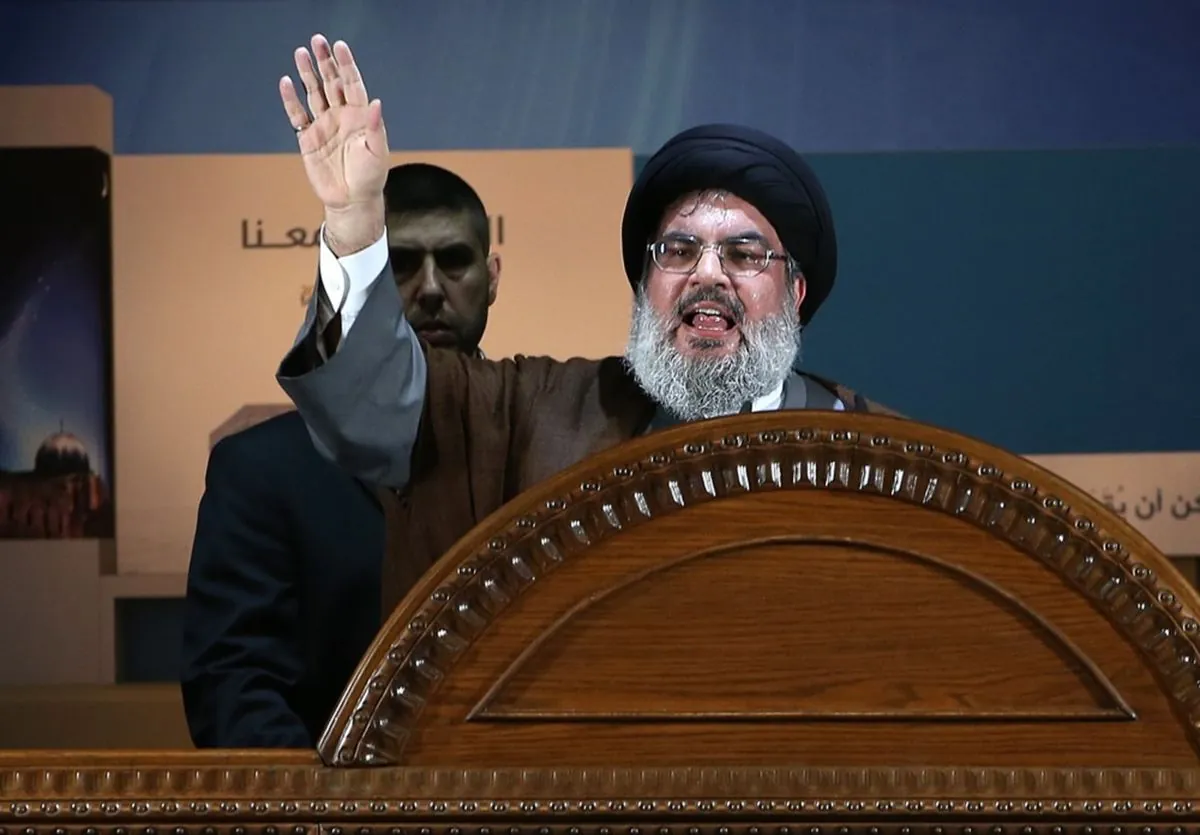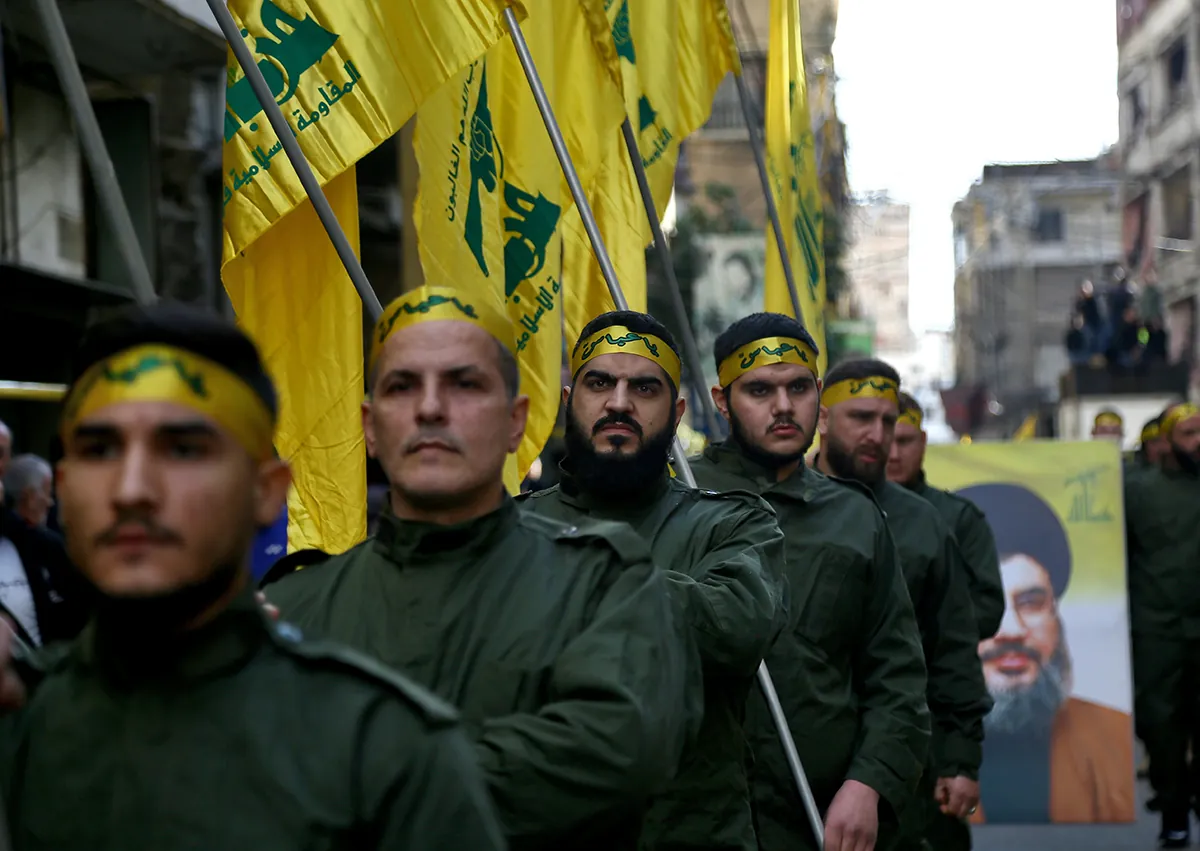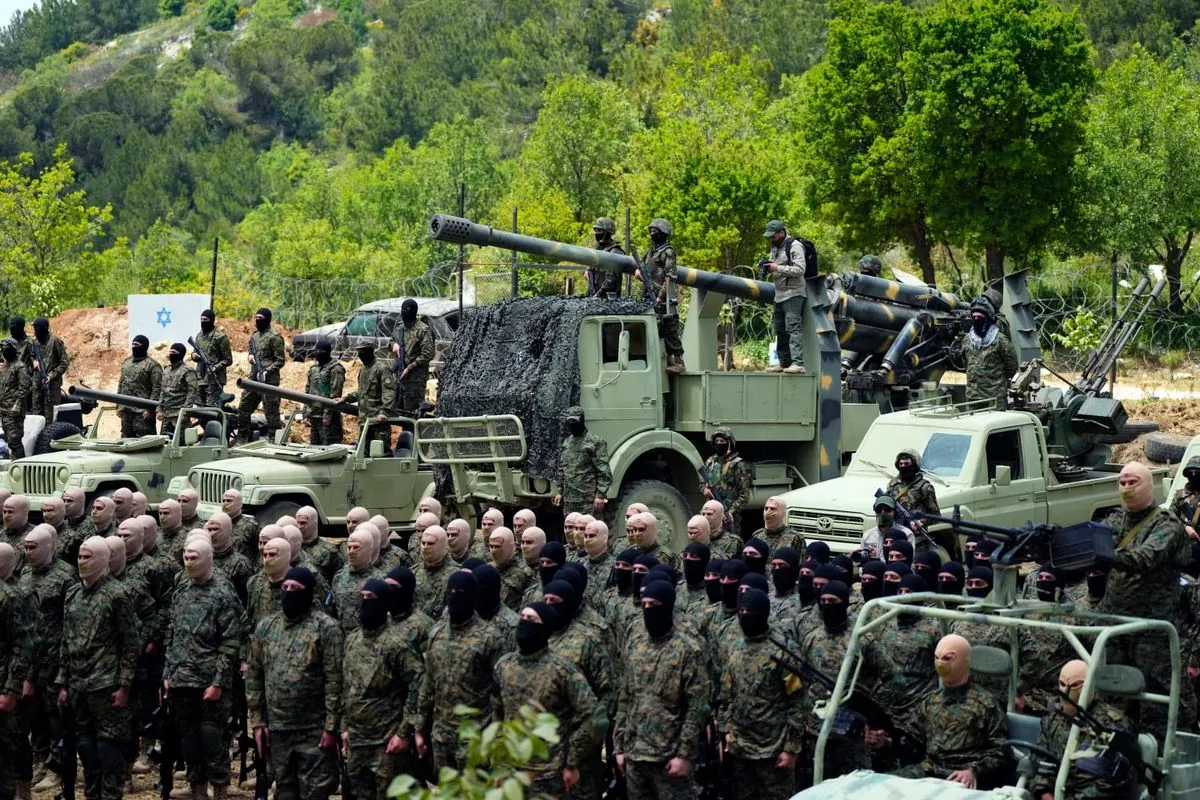Hezbollah's Future Uncertain as Israel Targets Leadership
Analysts assess potential impact of Nasrallah's removal on Hezbollah. Recent Israeli strikes raise questions about group's internal security and future leadership amid ongoing border conflict.

The potential elimination of Hassan Nasrallah, who has led Hezbollah for over three decades, could significantly impact the Iran-backed Lebanese organization. Analysts suggest that replacing Nasrallah would be a formidable challenge, especially in light of recent Israeli attacks targeting top Hezbollah commanders.
Hezbollah, founded in 1985 in response to Israeli occupation of southern Lebanon, has evolved into a multifaceted entity with military, political, and social service components. The organization, whose name translates to "Party of Allah," has been a major force in Lebanese politics and society, particularly among Shi'ite Muslims.
Nasrallah assumed leadership of Hezbollah in 1992 after Israel eliminated his predecessor. Since then, he has been under constant threat of assassination. His potential demise would likely have far-reaching consequences for the organization and the region.

Hezbollah's extensive social services network, including schools, hospitals, and charities, has contributed to its strong support base in Lebanon. However, the group is designated as a terrorist organization by numerous countries, including the United States and European Union members.
The ongoing conflict between Israel and Hezbollah, which intensified in 2023, has seen an escalation in violence along the Lebanese border. This marks the most severe confrontation since the 2006 Lebanon War. Recent Israeli strikes have raised questions about Hezbollah's internal security and operational capabilities.
Lina Khatib, an associate fellow at Chatham House, notes that while Hezbollah would not collapse without Nasrallah, his loss would significantly impact the group's morale and highlight Israel's military superiority.
"Israel has declared war. It is a full-scale war, and Israel is using this opportunity to eliminate the leadership structure and destroy Hezbollah's infrastructure."
Hezbollah's response to recent attacks, including rocket launches against Israel, demonstrates its attempt to project strength and operational continuity. The organization's military wing, estimated to comprise tens of thousands of fighters with a substantial rocket arsenal, remains a significant threat in the region.

The question of succession looms large for Hezbollah. Hashem Safieddine, widely regarded as Nasrallah's potential heir, oversees the group's political affairs and sits on its Jihad Council. Safieddine, a cousin of Nasrallah, shares similar religious credentials and family ties, which could factor into his potential leadership role.
Hezbollah's complex organizational structure, which includes both military and political wings, adds to the challenges of leadership transition. The group's deep ties with Iran, which provides substantial financial and military support, will likely influence any succession process.
As the conflict with Israel continues, Hezbollah faces increasing pressure on multiple fronts. The organization's involvement in regional conflicts, including the Syrian Civil War, and its alleged links to international terrorism and illicit activities have drawn global scrutiny and sanctions.
The coming months will be crucial in determining Hezbollah's trajectory and its role in Lebanon and the broader Middle East. The potential loss of Nasrallah could mark a significant turning point for an organization that has been a major player in regional politics and conflict for nearly four decades.


































